Student and Alumni Stories
Interested in learning more about the life of International Studies majors? Explore what our students do and enjoy while studying abroad and on our Seattle University campus.
Featured Alum
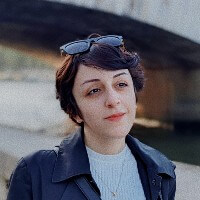 Yasmine Ansari, '21
Yasmine Ansari, '21
Hometown: Tehran, Iran
Additional Degrees: Women and Gender Studies and Arabic
Languages: English, Farsi, Arabic, Spanish
International Experience: United Kingdom
Extra Curriculars: Seattle University Students for Justice in Palestine.
Yasmine Ansari is currently doing a masters in International Relations of the Middle East at University of Edinburgh.
Why did you choose to come to Seattle University?
I chose Seattle University because of its location. Also, it is ranked among top national universities. The classes are small, and you are provided with a variety of study abroad programs, internships, and interesting courses in different disciplines to choose from.
How has your International Studies undergraduate degree helped you build your career? Or what parts of the International Studies program have helped you the most in your current job/grad school?
Majoring in International Studies at SU made me feel confident enough to apply for a few prestigious universities in the UK immediately after the graduation. My International Studies degree helped me to gain an in-depth understanding of the working knowledge of different research methods and improve my writing and analytical skills which have been critical to my success in grad school. I was trained to synthesize primary and secondary sources to make and sustain an argument that addresses the intersections between gender, sexuality, race, ethnicity, socioeconomic status, age, ability, and national status. I also learned a lot about the political and social forces, including colonialism, imperialism, and nationalism, that have shaped people’s lives in the Global South and specifically in the Middle East.
What was your favorite place on campus?
The atrium inside the College of Arts and Sciences
What was your favorite thing about living in Seattle?
Seattle is surrounded on all sides by mountains, and it has abundant green spaces. The summers are glorious. Seattle is so politically progressive, and Seattleites are passionate about politics. I think Seattle is the best bike city in the states, and it is full of vegan-friendly cafes and restaurants.
How did you come to choose International Studies as your major?
I always wanted to have an in-depth understanding of the main historical events, processes and actors that have shaped the political dynamics of the Middle East as well as the history of women’s movements in the region. Seattle University’s International Studies curriculum not only provided me with the opportunity to learn about the international relations and gender politics of the Middle East but also to improve my Arabic language skills and become familiar with different IR theories such as feminist security studies which has been the main theoretical framework of my research in grad school.
What was your favorite course?
Women and Gender in the Middle East
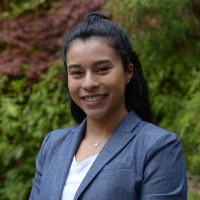 Hometown: Mountain View, CA
Hometown: Mountain View, CA
Additional Degrees: Chinese (minor), Spanish (minor) and Latin American Studies (minor)
Languages: English, Spanish, Chinese
International Experience: Mexico, Dominican Republic
Internship Experience: Intern for Senator Patty Murray’s Seattle Office, Virtual intern for the U.S. Embassy in Mexico City, Intern for NorCal World Trade Center
Extra Curriculars: Student Alumni Ambassadors
Melissa Cuevas is currently doing a masters in International Economics and Latin American Studies at Johns Hopkins University. She recently conducted a virtual internship in the Centro de estudios China-Mexico (CECHIMEX) in Mexico City.
Why did you choose to come to Seattle University?
I chose Seattle University because I resonated with the Jesuit values of educating the whole person. I saw Seattle University as a place where I could grow professionally and personally; where knowledge and relationships could be fostered.
How has your International Studies undergraduate degree helped you build your career? Or what parts of the International Studies program have helped you the most in your current job/grad school?
The International Studies Capstone course was vital in shaping my academic interests because it allowed me to explore a niche topic which has become the primary focus of my graduate education. My professors at SU continuously encouraged me to pursue my academic interests which led me to find the intersection between my studies in Latin America and China. Through the capstone project, I was able to conduct independent research on China-Latin American relations and learn about the major trends and scholars in the field. During graduate school at Johns Hopkins SAIS I had the opportunity to conduct research with the scholars I had cited in my undergraduate capstone research. It was a full circle experience for me where I got to work with the academic scholars who inspired me through literature on China-Latin American relations I was exposed to during my capstone research.
If you did an internship as a student, what did you like the most about it? How did it help you in your current career?
During my time at SU, I had several internships, but the most transformative experience was my internship with Senator Patty Murray’s Seattle Office. This was my first undergraduate internship where I developed a strong interest in public service. Since then, I’ve completed internships with other government entities and committed to developing academic skills that would be applicable to the federal government. I have also been given the opportunity to pursue a career in civil service as a Presidential Management Fellowship finalist. This would not have been possible without the initial exposure provided through my first internship with Senator Patty Murray.
If you volunteered in a SU or Seattle organization, club, etc., tell us about your experience.
During my time at Seattle University, I was a Student Alumni Ambassador, where I served as Marketing Chair during my junior year. This experience allowed me to work closely with the SU Alumni Association, where I was able to connect students with unique opportunities to connect with alumni. I was also able to welcome SU alumni back to campus through events such as reunions and various Homecoming events.
What were the most rewarding and challenging aspects of your study abroad experience(s)?
I studied abroad in Puebla, Mexico where I had the opportunity to live with a host family for six months. The most challenging aspect of this experience was the intensive language study which required a lot of work at first, but due to the immersive atmosphere, I was able to adapt quickly. The most rewarding part of this experience was being able to travel to various parts of the country to create memories with my Seattle University classmates. Together, we improved our language skills to be able to navigate independent travels from Oaxaca to Mexico City. It was rewarding to see my language develop and improve significantly during my time in Mexico.
What was your favorite place on campus? / What was your favorite thing to do on campus?
My favorite place on campus was the Byte Café on the second floor of the library. This was a perfect study and hang out spot between classes. With many students grabbing coffee or snacks between classes, it was the perfect place ot catch up with friends. It was also a great late night study spot because the café seating area would be open all night making it ideal place for to write papers after the main floors of the library closed.
What was your favorite thing about living in Seattle?
I loved that while on campus, there was a serene and tranquil atmosphere, but steps away from campus you could be in the hustle and bustle of the city. While living in Seattle I loved going downtown to explore new restaurants and enjoy the oceanfront views.
How did you come to choose International Studies as your major?
My interest in history, particularly my AP European History and World History classes in high school, naturally transitioned in a desire to work on global issues. I still debated between International Studies and Political Science as a major, but Seattle University’s International Studies curriculum and the opportunity to learn about different regions of the world ultimately made the decision for me. I will always credit the International Studies program with providing me the tools to succeed in graduate school and my work in international security.
 Hometown: West Windsor, NJ
Hometown: West Windsor, NJ
Additional Degrees: Japanese (minor)
Languages: English, Japanese
International Experience: Japan
Internships: Intern at Japan Society in New York, NY; Intern at the New Jersey State Council on the Arts in Trenton, NJ
Extracurriculars: Violinist in the Seattle University Chamber Ensemble and Chamber Orchestra club at Sophia University
Andrew Masaru Orita ’20 graduated from the University of Pennsylvania Carey Law School on May 15, 2023. After taking the bar, Andrew will join Davis Polk & Wardwell in their New York office. He thanks the International Studies faculty for their support during his time at Seattle University. He also thanks the International Studies department for its support of his year-long study abroad in Japan that sowed the seeds for his law school career.
Why did you choose to come to Seattle University?
My brother went to college in the Pacific Northwest. When we dropped him off it was my first time outside the East Coast. I was blown away by how beautiful it was, and I thought if there was ever going to be a time to live somewhere new, it was now. I also chose Seattle University because of its proximity to a Japanese American community I did not have at home in New Jersey, its study abroad program with Sophia, and the music program which let a non-music major participate alongside music majors.
How has your International Studies undergraduate degree helped you build your career?
The research and writing skills I learned starting from Introduction to International Studies through my Honors Capstone course have all been extremely useful in my law school career. Naturally, legal writing is a different beast, but the foundation for research and writing that the International Studies courses build has been invaluable. I have also found that studying Japanese and studying abroad in Japan has opened doors to cross-border transactional legal work for me that I might not have otherwise had.
Why your career is interesting? What do you like the most about it?
Law school at Penn has challenged my intuitions in so many ways, and I love that it does. For example, my criminal law professor sometimes prefaces his questions by saying, “Before your mind was poisoned by law school….” The legal researching, writing, and more generally thinking process is completely different from anything I’ve ever done before, but it doesn’t mean that what I’ve done before isn’t useful. I’ve been able to adapt what I learned at Seattle University to my work in law school and that has helped me tremendously.
If you did an internship as a student, what did you like the most about it?
I had an internship with the Japan Society in New York, a non-profit that works to bring together Japanese and Americans through culture. There I learned how a non-profit operates and how to do professional research and writing on a team.
It helped me with my research and writing skills and gave me perspectives on what work is like in both the private and public sector thus helping inform my decision to do transactional work after I graduate from law school.
What were the most rewarding and challenging aspects of your study abroad experience(s)?
The most rewarding aspect was being able to see my family in Japan for the first time in nearly eight years and to be able to speak to them and be understood. Since half of my family lives in Japan, I would only see them on the rare occasion that my dad needed to go to Japan, and I didn’t know a lick of Japanese any of the times he took me. Because I took intensive-level Japanese classes at Sophia University, I was able to connect with my family in a new way that helped support me through that year abroad and beyond. The most challenging aspect was that no matter how much Japanese I learned and no matter how much I practiced, I could never convey what I wanted to say 100%. The language barrier didn’t stop me from doing anything, but it made things more frustrating than they normally would be.
What was your favorite thing about living in Seattle?
I can say that having Uwajimaya Asian Market nearby was my favorite thing since I miss it the most. I was spoiled having such easy access to basic Japanese groceries, and now I have to Instacart everything from an H-Mart in West Philly.
With on-campus or off-campus jobs during your time at SU, how did these employment experiences prepare you for your current career?
When you are looking for internships in your first year in Law school, employers are looking for research and writing experience. My work at Japan Society let me practice these skills as a part of a team. At NJSCA I researched and wrote alone. At Seattle University, I was able to do both these things as well in teams and alone. I think taking advantage of the Honors Capstone course in the International Studies program helped me hone my research and writing skills as well (I even referred back to my thesis for sources for a seminar paper I’m writing this semester).
How did you come to choose International Studies as your major?
I knew I wanted a career that reflected who I am, and that meant being able to work internationally between Japan and the US. I didn’t know that I wanted to go to law school until partway through my junior year, so until then I was headed towards diplomatic work. Either way, what I learned from my International Studies courses and my study abroad experience set me up to succeed in any international career I might have chosen.
What was your favorite course? Why?
Both parts of the Honors Research Capstone were my favorite. I loved being able to shape the course to what I wanted to learn about, but I also really enjoyed hearing about what my classmates were passionate about. It reminded me that International Studies is such a flexible major and that you can shape it into whatever you want it to be.
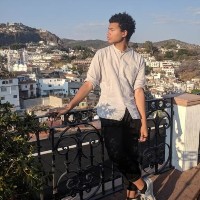 Hometown: Portland, OR
Hometown: Portland, OR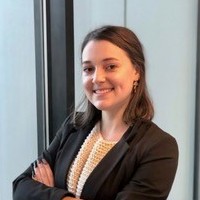 Hometown: Omaha, NE
Hometown: Omaha, NE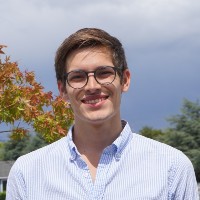 Hometown: St. Louis, MO
Hometown: St. Louis, MO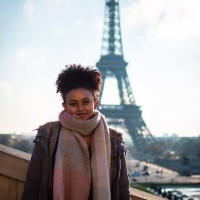 Hometown: Addis Ababa, Ethiopia
Hometown: Addis Ababa, Ethiopia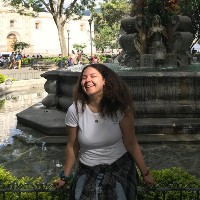 Hometown: Chicago, IL
Hometown: Chicago, IL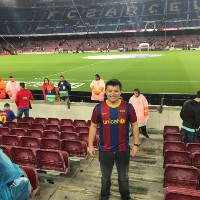 Hometown: Spokane, WA
Hometown: Spokane, WA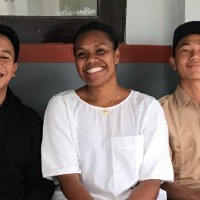 Hometown: Honolulu, HI
Hometown: Honolulu, HI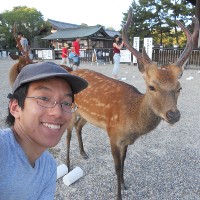 Hometown: Phoenix, Arizona
Hometown: Phoenix, Arizona